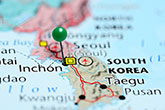European Commission approves Dutch scheme to support renewable hydrogen
Published by Bella Weetch,
Editorial Assistant
Global Hydrogen Review,
The European Commission has approved, under EU State aid rules, a €246 million Dutch scheme to support the production of renewable hydrogen. The measure aims to contribute to the development of renewable hydrogen in line with the objectives of the EU Hydrogen Strategy and the European Green Deal. The scheme will also contribute to the objectives of the REPowerEU Plan to end dependence on Russian fossil fuels and fast forward the green transition.
The Netherlands notified the Commission of its intention to introduce a €246 million scheme to support the production of renewable hydrogen in order to increase the country's electrolysis capacity.
The scheme will support the construction of at least 60 MW of electrolysis capacity. The aid will be awarded through a competitive bidding process planned to be concluded in 2023. The tender will be open to all companies established in the European Economic Area and operating, or wishing to build and operate, a hydrogen production unit in the Netherlands. The aid will take the form of a direct grant for a 7 – 15 year period. Beneficiaries will have to prove compliance with EU criteria for the production of renewable fuels of non-biological origin, set out in recently adopted delegated acts on renewable hydrogen. This includes contributing to the deployment or financing of the additional renewable electricity needed to produce the renewable hydrogen supported under the measure.
The scheme will contribute to the Netherlands' efforts to achieve 500 MW of electrolyser capacity in 2025 and 3 – 4 GW by 2030. It will also support the EU's ambitions to install at least 6 GW of renewable hydrogen-based electrolysers and the production of up to 1 million t of renewable hydrogen by 2024, and at least 40 GW with a production of up to 10 million t of domestic renewable hydrogen in the EU by 2030. The Netherlands expects that the scheme will lead to the equivalent of around 55 000 t of CO2 being avoided every year until 2030, which will contribute to the Netherlands' efforts to reduce its greenhouse gas (GHG) emissions by 55% by 2030, and to achieve climate-neutrality by 2050, compared to 1990 levels.
The Commission's assessment
The Commission assessed the measure under EU State aid rules, in particular Article 107(3)(c) the Treaty on the Functioning of the European Union, which enables Member States to support the development of certain economic activities under certain conditions, and the 2022 Guidelines on State aid for climate, environmental protection and energy (‘CEEAG').
In particular, the Commission found that:
- The scheme is necessary and appropriate to facilitate the production of renewable hydrogen, and thus the decarbonisation of the industrial, transport and/or energy sectors.
- The measure has an 'incentive effect', as the beneficiaries would not carry out the relevant investments without public support.
- The Netherlands put in place sufficient safeguards to ensure that the scheme has a limited impact on competition and trade within the EU. In particular, the beneficiaries will be selected following an open, transparent and non-discriminatory bidding process and the aid will be kept to the minimum necessary to undertake the projects. In addition, the aid will bring about positive effects, in particular on the environment, in line with the European Green Deal, that outweigh any possible negative effects in terms of distortions to competition.
On this basis, the Commission approved the Dutch scheme under EU State aid rules.
Read the article online at: https://www.globalhydrogenreview.com/hydrogen/31072023/european-commission-approves-dutch-scheme-to-support-renewable-hydrogen/
You might also like
Plug secures PEM electrolyser certification in Korea
Plug Power Inc. has secured international safety and performance certification in Korea for electrolyser manufacturing, enabling the commercial sale of Plug electrolyser systems in the Korean market.

